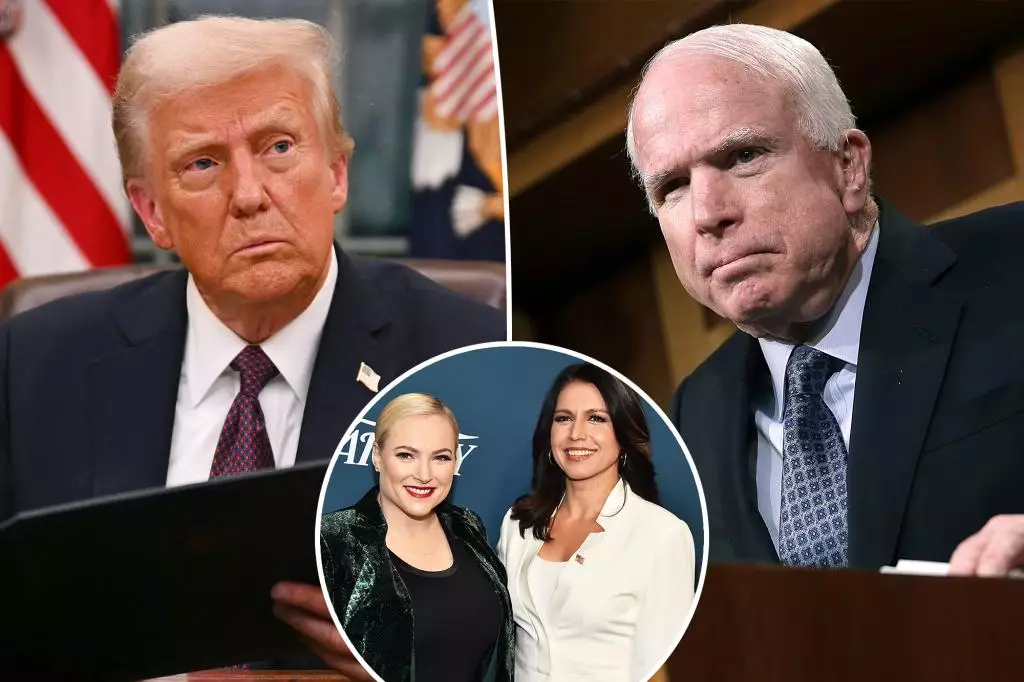The relationship between Donald Trump and the late Senator John McCain serves as a fascinating case study in the complexities of American political rivalries. It all started in 2015 when Trump, during a campaign rally, dismissed McCain’s accomplishments as a war hero by declaring, “I like people who weren’t captured.” This comment ignited a public feud that would manifest itself in various forms, including a palpable tension during McCain’s state funeral in 2018, where Trump notably was not invited. This snub highlighted the depth of their animosity and set the stage for a bitter rivalry, peppered with personal attacks that resonated deeply within the political landscape.
The public nature of Trump’s criticisms of McCain—especially following the latter’s decisive “thumbs down” vote against the repeal of the Affordable Care Act—fueled not only Trump’s ire but also that of McCain’s family. Notably, Meghan McCain emerged as a vocal defender of her father’s legacy, branding Trump with derogatory terms and passionately defending familial honor. These exchanges revealed not only their personal grievances but also a broader commentary on loyalty and honor in the context of service and sacrifice. Cindy McCain’s reflection on her husband’s deteriorating legacy offers insight into the emotional toll this feud exacted on the McCain family, further complicating the narrative by adding layers of personal grief and public spectacle.
However, recent events suggest that the animosity, at least on a personal level, may have softened. The crux of this thawing relationship seems to stem from Meghan McCain’s advocacy for Tulsi Gabbard, Trump’s intelligence nominee. Their connection, rooted in personal ties, highlighted an intriguing intersection of political alliances. Meghan’s efforts to rally support for Gabbard included outreach to other senators and appearances on various media platforms, culminating in a notable acknowledgement from the Trump administration. Her involvement in Gabbard’s confirmation process not only marked a strategic professional move but perhaps offered a path to recasting her family’s narrative in a more collaborative light.
The evolution of this feud into a more amicable association exemplifies the complex landscape of modern American politics, where personal and political lives frequently intermingle. Reports suggest that Meghan and her husband were even invited to the White House for Gabbard’s swearing-in ceremony, symbolizing a potential reconciliation or at least a pragmatic acknowledgment of new political realities. Such gestures indicate that the rigid line between ally and adversary can shift swiftly within political circles, especially when personal relationships and reputations are at stake.
Ultimately, the reminiscences and quarrels surrounding Donald Trump and John McCain encapsulate the sometimes petulant yet fiercely passionate world of American politics. While political dynamics are inherently fluid, this particular saga has demonstrated that even the deepest rivalries can find grounds for unexpected cooperation. As Meghan McCain has navigated these turbulent waters since her father’s passing, the shift in the tone of her relationship with Trump suggests that alliances can be forged in the most unlikely of circumstances, reflecting the evolving landscape of American political discourse.

Leave a Reply